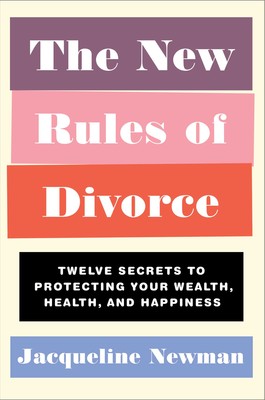Jacqueline Newman Talks Differences Between Mediation and Collaborative Law
What is the difference between mediation and collaborative law?
I tell my clients there are three ways to divorce, via: mediation, collaborative law or litigation. Most people know what litigation is, as litigated cases make for good television and fun sensationalistic articles. However, few people are aware of their other options.
If people want to avoid living their lives in a courtroom and having a person who will know them for 15 minutes making some of the most important decisions about their children and finances, then mediation or collaborative law may be a good option to consider.
Both processes are voluntary, so the parties need to agree to partake in mediation or the collaborative process and can leave either process at any point. In mediation, the parties typically work with one mediator and have attorneys assisting them from the outside. Attorneys can be present during mediation but that is not very common. Mediation is a step up from a kitchen table negotiation and the best way to do things if they can be done that way. However, when there is a large power imbalance between the couple or one person is not able to be present and vocal in the room, mediation may not work.
If a spouse feels the need to have an attorney present in the room, yet wants to settle the case in a fair and amicable and private manner, collaborative law is the way to go. When a person chooses the collaborative process, they should work with an attorney who is trained in the process, preferably if in New York by the New York Association of Collaborative Professionals (NYACP).
The parties and the attorneys enter into a Participation Agreement which is an agreement that states that if the process breaks down the parties cannot use the same attorneys to litigate. This encourages the parties (and the lawyers) to settle. Another benefit of the collaborative process is that there is an interdisciplinary approach to the collaborative process. You can create a full collaborative team which would consist of the lawyers, divorce coaches (which are therapists trained in the collaborative process), a financial neutral and child specialists if applicable. I often tell my clients that I am the most expensive player on the team, so if you can work with specialists who are trained in divorce accounting or dealing with the emotional components of divorce and they are less expensive than I am, why not use them? When a collaborative case works, it is an excellent and respectful way to end a marriage with dignity.
There are cases in which litigation is necessary. However, if it can be avoided and either mediation or the collaborative process can be utilized as a process choice for a divorce, it will best serve all parties involved.
Buy Jacqueline's Book
The New Rules of Divorce is the definitive guide to navigating divorce in today’s world.
